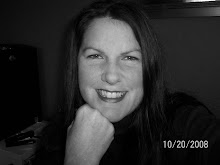I recently stumbled across a blog called, "Dumb stuff I read on resumes" started by a recruiter. He is a bit mean-spirited at times, but when reading some snippets of resumes/cover letters he's posted, it does lead one to say to themselves, "What were they thinking?"Here are a few examples of WHAT NOT TO DO OR WRITE ON YOUR RESUME:
Thursday, October 30, 2008
I recently stumbled across a blog called, "Dumb stuff I read on resumes" started by a recruiter. He is a bit mean-spirited at times, but when reading some snippets of resumes/cover letters he's posted, it does lead one to say to themselves, "What were they thinking?"Here are a few examples of WHAT NOT TO DO OR WRITE ON YOUR RESUME:
Wednesday, October 15, 2008
Clients begun sending me "invites" to "connect" on their different sites and boy, are there a lot of them.. Plaxo, LinkedIn, Fast Pitch, Tagged, and Twitter, just to name a few. Not wanting to seem rude to my clients, I finally broke down and started an account with LinkedIn. I found it to be very professional and a great way to have an online bio that perspective clients and colleagues can read to have a better idea of what it is I do.
Finally, after hearing my nieces and nephews talk about Facebook all summer long, I decided to cave and start an account. I did one for business and one for personal. Once I got the hang of it, it was like a giant light went on and suddenly, without warning, I was hooked. The first two weeks I was like a fiend, "connecting" with old friends and family in my personal account--catching up on what everyone had been doing, who was having children, where were they working, who had moved, married, etc. I had to keep checking. It was like a drug. Who was doing and posting what? After about a week and a half, the dazzling draw of it started to wear off. Thank goodness.
I realized a few things in my networking journey so far:
1) You can control your privacy settings, so only your "friends" can see what you posted... not the whole world.
2) With my business account, it is a fantastic way to see what my colleagues are doing, what articles they find useful, clients or projects they are working on, etc.
3) You don't have to invite EVERYONE in your address book (my first mistake when joining-- I invited everyone to join me). Invite who want to hear about.
4) Use these sites sparingly at work--remember, many companies ban the use of these at work due to loss of productivity and the system resource drain. Your job could be in jeopardy if use them without permission (although, c'mon who ever really asks their bosses if they can Facebook while at work?). Save your networking for home.
5) Pick and choose your networking forums. You don't need to join every one. It gets to be too time consuming trying to keep up with more than one or two.
I still check my Facebook everyday. Although maybe just one account or the other, and only about twice a day. Who has the time? I am still catching up from the work I missed while on my Facebook high.
If you are contemplating joining one of these sites, read my 5 tips first and be ready to enjoy yourself. As a former skeptic, it's easy to get hooked.
Until next time...
Erin Kennedy
Wednesday, October 01, 2008
+++++
CareerBuilder.com released a new survey on Unusual (and Fun) Jobs A to Z. They asked 8,700 works and the following are the top entrants, A to Z:
A - Autopsy assistant
B - Bartender at the Liberace mansion
C - Cat nanny
D - Donkey trainer
E - Elf at Santa's workshop
F - FBI fingerprint examiner
G - Grave digger
H - Hurricane hunter
I - Ice sculpture carver
J - Junk mail machine operator
K- Kitty litter box decorator
L - Laser tag referee
M - Magician's assistant
N - Nuclear electrician on a submarine
O - Opera singer
P - Parachute tester
Q - Quality control/taster for chocolate factory
R - Romance specialist
S - Scratcher (scratched backs for patients)
T - Turkey wrangler
U - Undercover vice decoy
V - Video game tester
W - Wallpaper peeler
X - X-ray technician for zoo animals
Y - Yawn counter at a sleep clinic
Z - Zamboni driver
Considering advancing your education even further? Executive MBA programs are known for turning managers into full-fledged executive and c-level leaders, showing you how to think strategically, motivate staff, and expand business.
In an article in the Wall Street Journal's Career Journal, these are the top 5:
1. Northwestern University's Kellogg School of Management
2. University of Pennsylvania's Wharton School
3. The Thunderbird School of Global Management
4. University of Southern California's Marshall School of Business
5. University of North Carolina's Kenan-Flagler Business School
To read the full article, go to:
http://online.wsj.com/article/SB122244975223379303.html
I get asked often by clients if they need a CV. Then the next question inevitably is, "What IS a CV?"
A CV is a Curriculum Vitae. It is generally used by college professors, physicians, researchers, lawyers and any profession where lists of information are required. Examples include publications, presentations, conferences, residencies, education, etc. They can even be over 20 pages long in some cases.
Internationally, in some areas of the world resumes are called CVs, but they really are resumes. Other countries require a CV type of a format (lists) from candidates. Those are usually the countries where pictures on resumes are required as well.
If you are planning on staying in the United States and do not plan on going into medicine, law or academia, chances are you will only need a resume.



